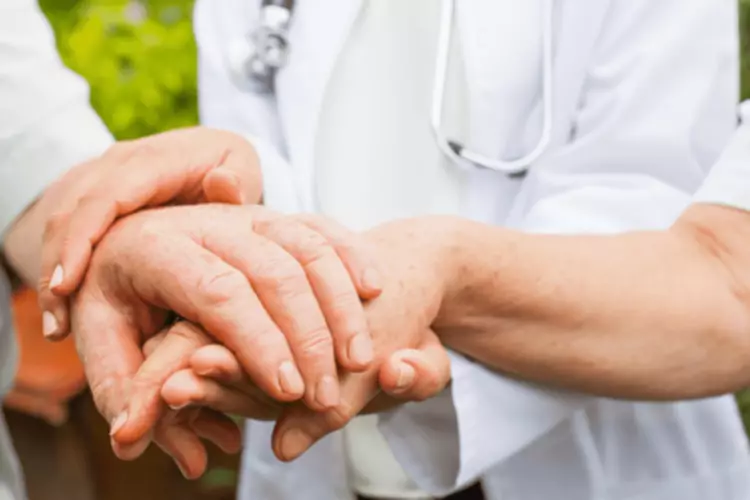Sober living
10 Tips For How To Support Someone In Recovery From Addiction: Family Addiction Specialist: Addiction Counselor

There will be good days and bad days, and progress may seem slow at times. Your optimism and faith in their ability to recover can be a powerful source of motivation for your loved one. Encourage your loved one to express their feelings and struggles, and listen without judgment. This not only fosters trust but also helps them feel understood and less isolated. Twin Branch offers a peaceful, safe, comfortable, and home-like environment and is the perfect place to restart your future.

Avoiding Enabling Behaviors or Codependency

Reaffirming that you recognize how hard your loved one is working and are proud of the changes they’ve already made will mean the world to them. This is especially true when your loved one meets important recovery milestones, such as earning a 30-day sobriety chip or completing residential treatment. The immediacy and consistency of positive rewards for any movement in a healthy direction has been shown to shape behavior in addictive individuals that can increase the odds of recovery.
Self Help and Support Groups
Whether they are overcoming addiction or mental health challenges, your presence can make a world of difference. However, knowing how to offer the proper support without feeling overwhelmed or helpless can be challenging. This blog will guide you through the essentials of being a pillar of strength for friends and family in recovery, offering practical advice and emotional insight. By understanding the unique challenges of recovery, you can help your loved ones stay motivated, feel understood, and regain their confidence as they rebuild their lives. Family and friends tend to try to protect their loved one from those consequences, but that often has the unintended effect of enabling the substance abuse to get worse.

Set Boundaries
This support is helpful and healthy, but it’s important to let them know you will only be supporting their recovery efforts – nothing else. Focus on supporting your loved one’s healthy, future goals, such as continuing education or finding a job. Those who have mental health issues and a substance abuse problem may benefit from dual-diagnosis rehabs. Use the appropriate filter in our tool above to find rehab centers with programs designed to meet the unique challenge posed by co-occurring disorders. Gateway Foundation is an addiction treatment center with locations throughout Illinois. We offer a range of evidence-based treatments to help individuals overcome their addiction to drugs or alcohol and enter recovery with long-term support.
Remember that addiction is a disease
- You can also find information on how to volunteer with each organization and types of volunteer activities each organization leads.
- Ultimately, the responsibility for your loved one’s sobriety is all theirs.
- Loved ones of an addicted individual suffer just as much, if not more, than the addicted individual themselves.
- The table below represents the most recent data available regarding DUI trends in New York.
- Even when an individual detoxifies from a substance, the reward system in the brain can remain changed for a long period of time.
New York ranks near the bottom for the rate of prescriptions written in 2012 in every category but one – the prescription rate for high-dose opioid pain relievers in New York was about average at 4.3 per 100 people. The table below represents the most recent data available regarding DUI trends in New York. In the five-year span between 2012 and 2016, the overall number of crashes due to impaired drivers trended downward. Notably, the crashes involving alcohol decreased significantly, but crashes involving drugs increased.
Hurricane Helene
Some halfway houses are listed in our database, and you can find them by using the appropriate filter in our tool above. Otherwise, head to our guide on sober living homes to learn more about sober living homes, and to find a certified recovery residence near you. The tool below lists all of the treatment centers in the state of New York recognized by the Substance Abuse and Mental Health Services Administration (SAMHSA). Input your zip code and select the filter icon to find relevant rehabs near you. If the cost of rehab is a barrier for you (as it is for many) and you don’t have insurance, there are still ways for you to get help. Out of the 784 rehab facilities recognized by the Substance Abuse and Mental Health Administration (SAMHSA) in New York, 216 offer some sort of payment assistance to most adults.
- I can help you find one if you’d like.” Offering assistance in finding a therapist can make the process feel less daunting for them.
- Remember that addiction makes people do and say things that are out of character.
- Disaster survivors in certain areas of Georgia, Florida, North Carolina, South Carolina, Tennessee and Virginia can begin their recovery process by applying for federal assistance through FEMA.
- Your goal in supporting your loved one shouldn’t be in providing strategies to overcome cravings, or to help them reframe their addictive thought patterns, or to uncover the root cause of their addiction.
While it’s natural to want to be there for them in every way, it’s important to remember that healthy boundaries help maintain balance and prevent burnout. Setting clear expectations for how you can offer support ensures that your needs are respected. Boundaries create structure, allowing your loved one to take responsibility for their recovery while also protecting your emotional and mental health. Physically, the body goes through significant changes, particularly in the early stages of detox and treatment.

Online Therapy Can Help
Overall, you don’t want to make your loved one feel different because they are in recovery. It’s important not family support in addiction recovery to drink or use substances around a person in recovery. Instead, find activities you can enjoy with your loved one that do not involve substance use. If you struggle with a substance use disorder yourself, consider reaching out to a treatment center for help. Enabling behaviors, such as covering up mistakes or providing financial bailouts, can hinder recovery. Instead, encourage your loved one to take responsibility for their actions and support them in making positive changes.
